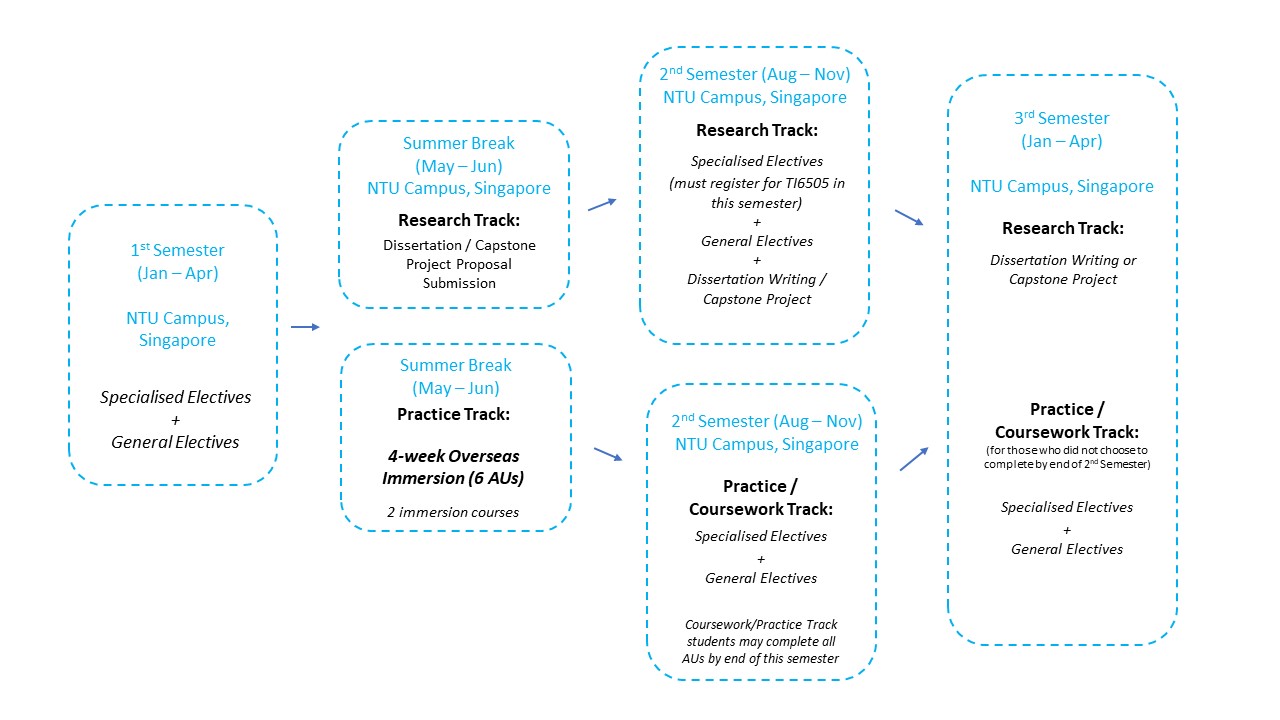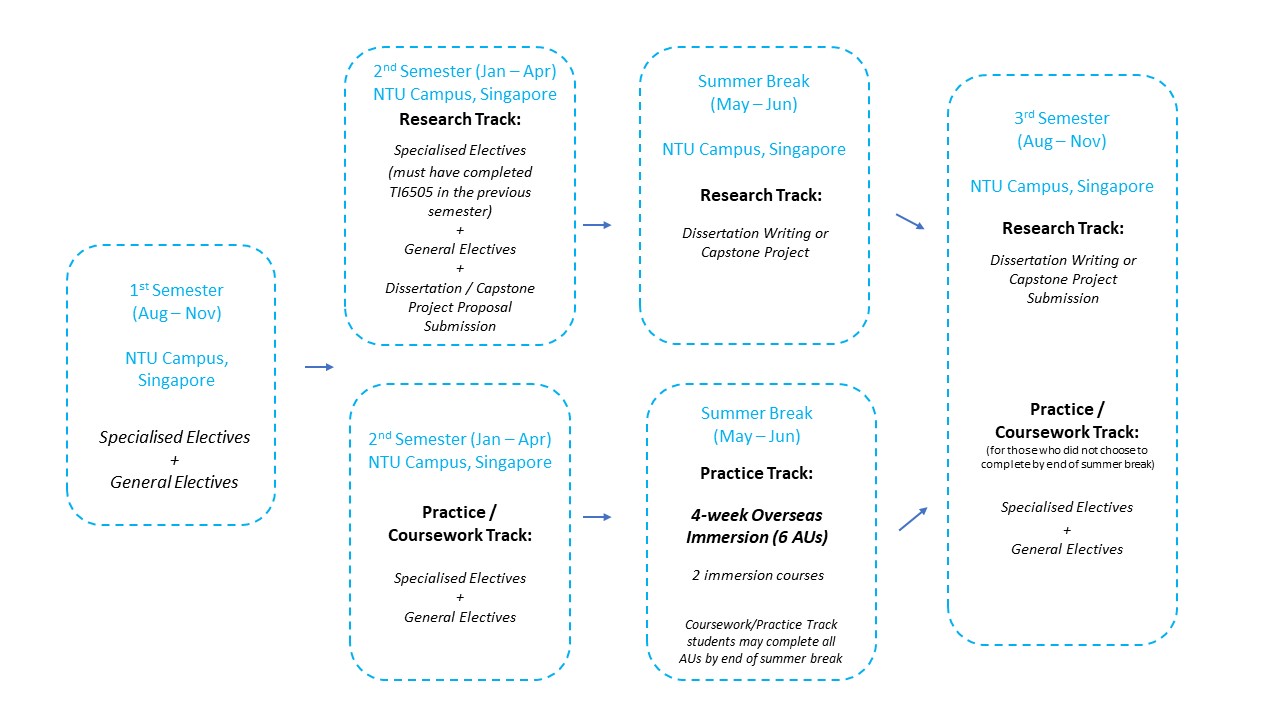Curriculum
The MTI Programme places a strong emphasis on both academic and hands-on training, allowing students to receive a thorough education in a broad range of subjects as well as specialised skills and methods for translating and interpreting. We recognise that students come from a variety of academic and professional backgrounds and are at various stages of deciding and changing careers. Our programme aims to provide study options and flexibility to complement and synergise existing experience, qualifications, knowledge and know-how to achieve their goals for academic and career advancement. Classes are held in the evenings of weekdays and on Saturdays; the MTI programme welcomes local students to embark on their study journey while working a full time.
Candidature duration
Minimum of 1 year and maximum of 2 years.
Curriculum requirements
Choose one of three Study Tracks
| Research Track (30 AUs) | Practice Track (30 AUs) | Coursework Track (30 AUs) |
|
|
|

.jpg?sfvrsn=6a25057f_0)

.jpg?sfvrsn=1fd4ba80_0)
Key components of the curriculum
1Specialised elective courses are centred on core, indispensable and sophisticated knowledge that underpins translation and interpreting studies. They provide the intellectual foundation for further education, research, and professional development whether one’s interests lie in STEM/STEAM (Science, Technology, Engineering, Arts, and Mathematics) or SHAPE (Science, Humanities, Arts for People and the Economy). Seminars, flipped-classrooms and translation practicum in a simulation laboratory are incorporated into the course design, to help students to consolidate learning outcomes by developing essential knowledge and transferrable skills such as critical and analytical thinking, self-reflection, leadership and project management skills, communication and social skills, public speaking and peer evaluation.
- Complementarities and customised combinations between Specialised Electives and General Electives.
- Fulfilment of the career aspirations of students who come from different academic and career backgrounds.
- Adaptation of students to the versatility of the employment market and applications for PhD or other professional degrees.
- Accomplished learners can finish their study within 1 year whilst others can pace their learning agenda.
Specialised Electives
- TI6001 Translation Theories
- TI6003 Introduction to Interpretation *Compulsory for Practice Track
- TI6004 Translation Technology
- TI6403 Literary Translation, Creative Writing and Story Editing
- TI6501 Texts in Context in Translation and Interpretation
- TI6502 AI, ChatGPT and Machine Translation
- TI6504 Contrastive Linguistics and Translation: English - Chinese, cross-listed with the Master of Arts in Linguistics HG6303 from 2024
- TI6505 Research Methodology: Dissertation and Capstone Project *Compulsory for Research Track
- TI6506 Optimising Machine Translation: Pre-Editing & Post-Editing Skills in the AI Age
- TI6507 Varieties of Chinese and Translation, cross-listed with the Master of Arts in Linguistics HG6202 from 2025
- TI6701 Methods of Healthcare Interaction & Translation
General Electives
- TI6102 Audiovisual Translation
- TI6107 Advanced Subtitling in the AI Era – Genres and Cultures (NEW!) TI6207 Localisation and Translation Project Management
- TI6214 Interpreting in Practice *Compulsory for Practice Track
- TI6401 Literary Translation in the Singapore/Malaysian Context
- TI6402 Translation and Mainland Chinese Literature
- TI6503 Translation: Journalism and New Media
- TI6601 Localisation, Financial Translation and Digital Marketing
- TI6602 Game and Transmedia Localisation (NEW!)
- TI6801 Translation, Cultural Heritage and Museum
- TI6802 Multimodal Translation: Theatre, Performance Arts and Culture
Immersion courses (for Practice Track only)
- TI6211 Simultaneous and Consecutive Interpreting I
- TI6212 Simultaneous and Consecutive Interpreting II
Research Track only
- TI6303 Capstone Project
- [No-course code] Dissertation
